Much has been written about the United Airlines fiasco which occurred on Sunday involving passenger Dr. David Dao. As you are well aware, United needed to find room on the flight for some of its employees, so the airline “re-accommodated” Dao by dragging him out of the plane and injuring him in the process. Hopefully, United will learn from their egregious blunder.
But let’s not act as if they’re the worst company in America. Here are five companies which are worse than United.
After bloodthirsty Planned Parenthood, clearly the worst of all, these are in no particular order.
Planned Parenthood
You can’t get worse than being in the business of death.
Planned Parenthood makes hefty sums of money from extinguishing hundreds of thousands of unborn lives per year, all while claiming they’re a health organization. Planned Parenthood’s most recent annual report proudly lists the number of “abortion procedures” at 323,999 and “adoption referrals to other agencies” at 2,024.
They are in the business of death.
Nothing has been more telling than the investigative work done by David Daleiden and The Center for Medical Progress, though. Their undercover footage shows brash, egotistical PP employees, including doctors, calmly discussing the procuring and selling of fetal tissue and body parts.
Though PP flatly denies any wrongdoing, it is more than apparent that the baby body parts trade is big business for them. Recently, California AG Xavier Becerra (a friend of Planned Parenthood) charged Daleiden and Susan Merrit with 15 felony counts. This is nothing short of gross overreach by Becerra, as others have noted.
Planned Parenthood is simply the worst company/organization in existence, since they rely on death and tissue sales in order to meet their bottom line.
Theranos
The groudbreaking company aimed at revolutionizing blood testing isn’t exactly what it initally claimed.
…company founder Elizabeth Holmes holds up a tiny vial to show how the startup’s “breakthrough advancements have made it possible to quickly process the full range of laboratory tests from a few drops of blood.”
This would have been huge for the health industry, providing quick, wide-ranging results for patients at regular medical facilities, and even places like Walgreens. But the technology didn’t work as Theranos and Holmes – once valued at 9 billion – claimed, as reported by David Crow and Leslie Hooks at Financial Times.
…once seen as a Silicon Valley darling for its pledge to replace needles and venous draws with its own proprietary blood-testing system. Ms Holmes claimed the system could generate accurate results from a few drops of blood deposited in a tiny glass vial or “nanotainer”.
Her pledges attracted hundreds of millions of dollars from financial backers, including PFM, which invested $96.1m in February 2014 during a fundraising that bestowed Theranos with a valuation of $9bn.
But for the past year Theranos has been battling revelations that its proprietary system was technically flawed and its staff poorly qualified, resulting in dangerously erroneous results being sent to patients.
An investigation by government regulators resulted in Ms Holmes being banned from the blood-testing industry.
“Theranos and its principals knowingly and repeatedly lied that they had developed proprietary technologies that worked, were on the cusp of receiving all necessary regulatory clearances and approvals, and concealed the truth about the commercial viability of their technologies and methods,” according to the letter from PFM.
Theranos is still around, but safe to say, their credibility is…shot.
Mylan
The pharmaceutical company makes EpiPen, a life-saving device which is essentially a necessity for those with severe allergies. Mylan dramatically increased the price in the last several years, as CBS reported.
Pharmaceutical giant Mylan was at the center of criticism last year over rising drug prices. Mylan’s EpiPen became the lightning rod for scrutiny, as its price increased by nearly 500 percent over seven years.
CBS News coverage of the life-saving device for allergies created public outrage and led to a congressional investigation. Last September, Mylan CEO Heather Bresch was called before Congress to explain why EpiPen’s price had soared from about $103.50 in 2009 to more than $608.61 in 2016.
The cost of the life-saving drug inside each EpiPen injector is worth a couple of dollars. But the design is what’s added to the price tag.
“Why did the price of EpiPen increase 500 percent over the past decade?” O’Donnell asked.
“Because we realized there was an unmet need. … And so we made a conscious decision, the board, we put a business plan together to invest, to build public awareness and access,” Bresch said.
Because Mylan wanted to make it more accessible, it became more expensive, Bresch said.
An almost 500% increase in price to make it more accessible to those desperately needing it? Hmm.
Uber
The popular ride-share company has run into some major public relations bumps for their myriad of problems, as reported just last month.
The situation at Uber has been grim, with disasters popping up quicker than a sinister game of whack-a-mole. The company had previously come under fire because of the way they have allegedly shortchanged drivers and battled with cities over regulations. That coupled with lifting surge pricing as taxi protests Trump’s Muslim ban at JFK spawned the #DeleteUber movement on social media.
That movement wasn’t slowed by the revelation that Uber’s terms of service say they’re allowed to the app to track users while they aren’t in an Uber car.
That was followed by Susan Fowler’s explosive blog post alleging some truly awful experiences with sexism at Uber. Her post caused others to speak out about their experiences as well. That was followed by the departure of their SVP of engineering over past sexual harassment allegations. It also saw the departure of their VP of product.
Then a video surfaced of Kalanick arguing with an Uber driver, which didn’t help anything.
That wasn’t the end of issues for Uber, either. The New York Times revealed Uber’s Greyball program with which they intentionally avoided law enforcement and skirted regulations.
Pricing, treating driver employees badly, sexual harassment, and tracking users via app when they aren’t actually in a car? What a mess. I think I’ll drive myself.
Comcast
No one likes Comcast. Even those who don’t have it (I don’t) loathe them, and also steer clear of them, because of countless stories from family and friends about terrible service, pricing, and unreliability. There’s a reason why they’ve been named the worst company in America more than once in the past several years.
Earlier this year, PC Mag said it again topped the list.
Financial news site 24/7 Wall St. this week released a report identifying “12 companies hated by customers, employees, and the general public.” Their findings are based on consumer satisfaction surveys and worker reviews.
Comcast topped the list, boasting a “significantly worse” score than the Internet and subscription TV service industry averages, according to 24/7 Wall St. In J.D. Power’s rating of major wireline services, the firm received the worst scores in cost to consumer, performance, billing, and reliability.
Clients are understandably perturbed: The Federal Communications Commission in the fall fined Comcast for $2.3 million over allegations the cable company charged customers for services they never authorized.
And it gets even worse, as Gear & Style CheatSheet also wrote this year.
Perhaps worse than Comcast’s price hikes, fees, and terrible customer service is its rage-inducing insistence on being hostile to its customers. The company’s widely criticized data caps were intended to annoy customers into paying more for their service. Long waits, unfair fees, unhelpful service, inflexible bundles that force customers to pay for channels they don’t watch, and prices that rise continuously for loyal customers unless they call and threaten to cancel all exemplify Comcast’s efforts to alienate customers.
And in the latest development in Comcast’s long-running history of giving you reasons to hate it, Comcast is telling regulators that it wants to either charge you for privacy or sell your browsing history to advertisers.
Is United a less than an ideal company? Certainly. They have much room for improvement. In my opinion, however, they are not the worst company in America. Many other companies – including the worst of all, Planned Parenthood – surpass them in that regard.
And these are just a few.

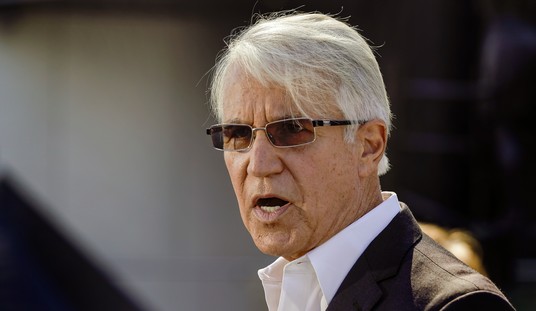
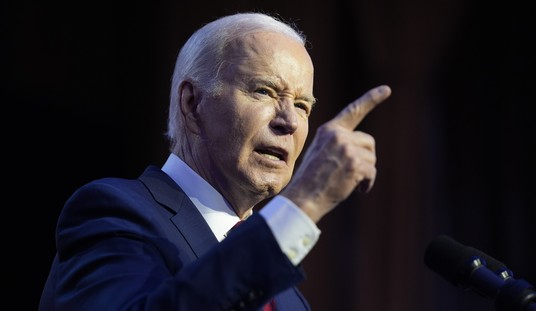



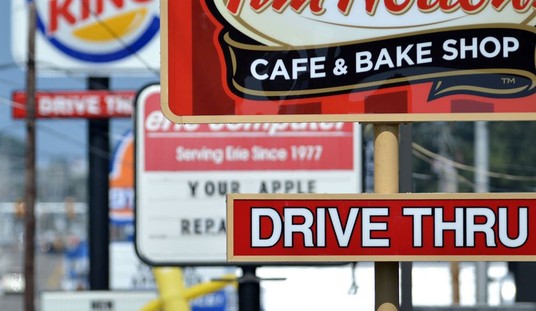
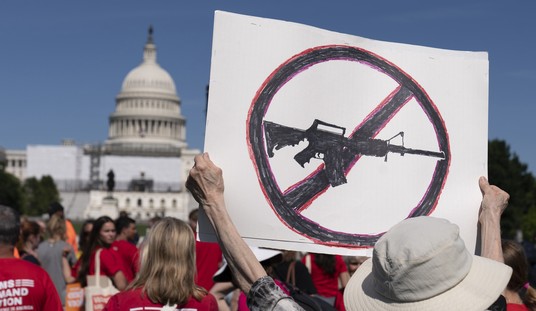
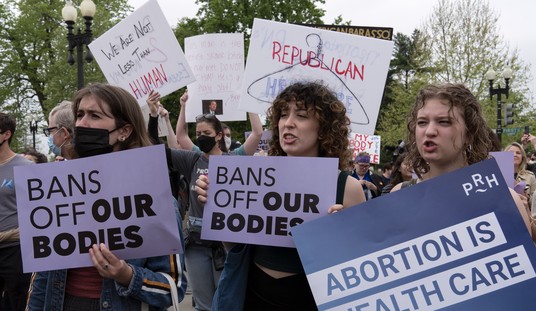
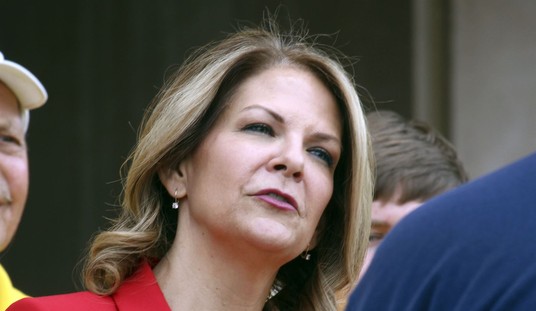


Join the conversation as a VIP Member